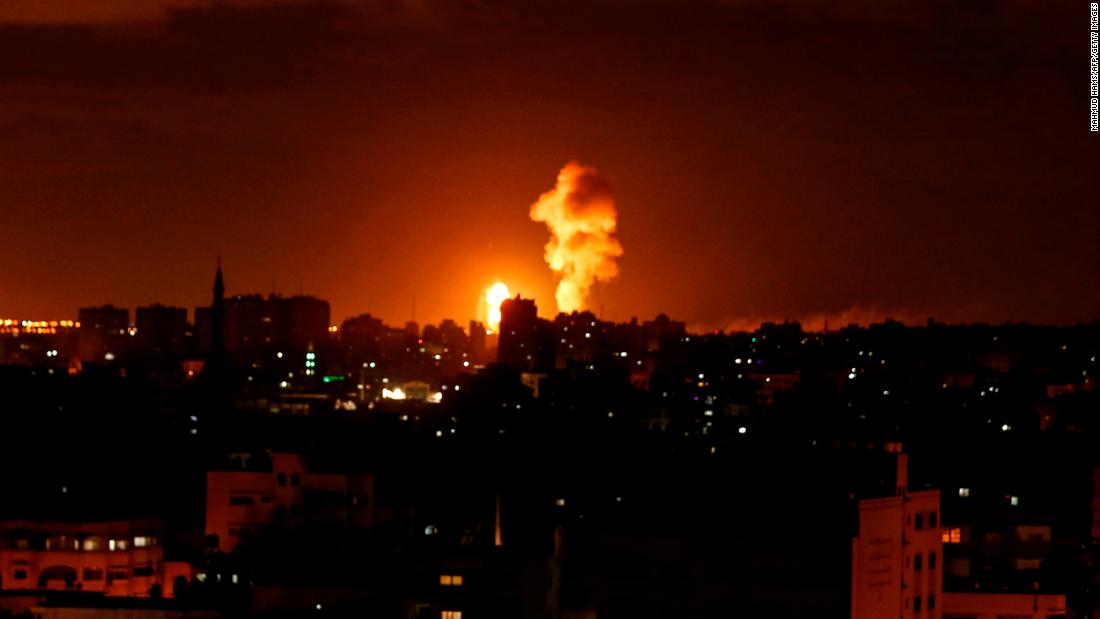
The IDF responded with a series of airstrikes, including fighter jets and helicopters, targeting what the IDF described as "terror targets" in the coastal enclave. Israel says it holds Hamas responsible for what happens in Gaza.
The sharp escalation follows protests along the Gaza border earlier in the day. The IDF says some 16,000 Palestinians protested along the border on Friday, with some hurling grenades and firebombs.
The Palestinian Ministry of Health says four Palestinians were shot dead by Israeli forces during the clashes.
The four have been named as Muhammad Khaled Mahmoud 'Abd al-Nabi, 27; Nassar Abu Tim, 22; Ahmed Said Abu Libda, 22; and Ayesh Ghassan Shaat, 23. More than 200 people were injured in the clashes, Health officials said; of those, 180 were injured by live ammunition.
Earlier in the week, Israel's defense minister, Avigdor Liberman, vowed to step up the country's response to these ongoing protests.
On Friday, the IDF targeted three Hamas military posts in northern Gaza, part of the buildup to the escalation of the evening.
Israel and Gaza have seen similar sharp flare-ups in recent weeks.
One day earlier, a rocket from Gaza landed in southern Israel. In response, the IDF struck eight military targets in three Hamas compounds in Gaza, including a training facility, munitions manufacturing sites, and a storage site. No one was injured in the strikes.
Last week, a rocket from Gaza hit a home in the southern Israeli city of Beer Sheva, prompting Israel to carry out airstrikes against nearly two dozen Hamas targets in Gaza.
In recent weeks, Egypt and the United Nations have stepped in to act as mediators when fighting has flared, urging both sides to de-escalate. Both Egypt and the UN hope a short-term ceasefire agreement could improve Gaza's humanitarian situation.
On Wednesday, Israel allowed fuel transfers into Gaza to resume, increasing the electricity available in the coastal enclave, which has only a few hours of power a day. The fuel, funded by Qatar, was intended to alleviate the humanitarian conditions in Gaza and reduce the tensions that contribute to the border protests.
Liberman, the Israeli defense minister, has not yet announced whether he will stop the fuel transfers yet again in response to the latest border protest.
No comments:
Post a Comment